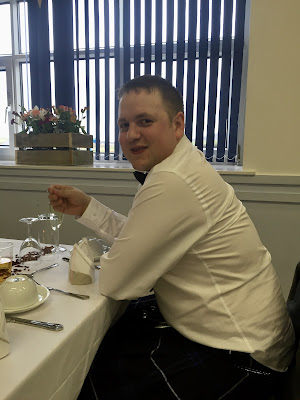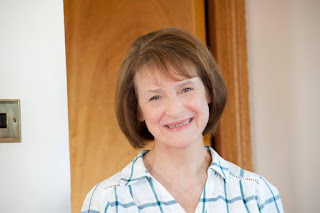Ali
The short walk in Brue between my house and Ali’s is one I’ve done more often than any other in my life. Among my earliest memories is my father, Michael, walking us both in the road to take Ali home after he’d spent the day with us. It was a clear night and for the duration of the walk Ali looked up at the sky and named all the different constellations he recognised. On our walk back my father, the schoolteacher, remarked on what an unusually bright and inquisitive young boy Ali was.
For our constellation of friends growing up on the West Side of Lewis the Maciver home was the central point in our childhoods. Ali’s late mother Ina often talked about the number of children in our generation - 40 of us in Brue alone. This Siarach baby boom was the cradle for lasting friendships whose closeness and number can often surprise friends I’ve made in adulthood, accustomed to losing touch with childhood companions across the course of their lives.
The home which Ina & Iain built for Ali, Ruairidh and Donald shaped everyone who grew up with them. From the living room facing the Atlantic at the front of the house to the study facing the Barvas moor at the back, our experiences there were among the formative influences of our childhoods and it’s where we trace some of our happiest memories.
The incidental details that stand out: the hallway with its gallery of family photos but whose walls always made room for the many friendships the family valued so highly. The study and its vast library from which we were all welcome to borrow. (Ali, upon reading his parents’ copy of One Flew Over the Cuckoo’s Nest in his early 20s, dryly thanked me for the copious notes I’d left on the backpages after borrowing it for a school essay several years earlier). The occasional personal reminders Iain would write in ancient Greek to stop his bilingual children understanding them. The framed photos of Ina’s female forebears sharing her and her sisters’ unmistakeable features but with a stern early 20th century countenance seldom encountered in any of them. The successive generations of family cats each with a name more distinctive than the last: Arnie (after Arnold Schwarzenegger); Doobie (after the painter Dubois); and Sìleas (for one of Ina’s favourite Gaelic poets, Sìleas na Ceapaich).
Ina was a woman whose overwhelming love for her sons extended to a lifelong investment in the hopes and successes of their friends. Her instances of kindness to us would defeat any list. At the different milestones in our lives she was invariably one of the first voices on the phone with congratulations or encouragement. It was remarked at Ina’s own passing that her and Iain’s door was never closed to anyone – an instinctive generosity which even the most hyperactive of our childhood antics failed to test. This hospitality and kindness forms part of the common memory that binds us as adults.
Incidentally, it was from Ali - a year my senior - that I first learnt to swear (in English, anyway). Having, in Donald and Ruairidh, the oldest of the older brothers in our friend circle, Ali had an immediate proximity to adolescence which was still several years away for the rest of us.
Both Donald and Ruairidh were people Ali greatly looked up to and who he followed in many of his interests. This is something marked not least by his and Ruairidh’s shared devotion to Bob Dylan. Ali’s position as the isean deireadh of the family, born seven and nine years after his brothers, meant that Donald and Ruairidh’s lives – whether on Lewis or in Glagow and Edinburgh – always seemed slightly exotic to all of us. My late auntie Kennag remembered Alasdair running into my parents’ kitchen boasting of Ruairidh’s fame on Machair and offering to get her his autograph.
The love and attachment he felt for his parents and brothers was true for the extended family to which they were so remarkably close. Becoming acquainted with this wider circle of relatives was just one of the privileges of friendship with Ali. Whether that be the Clarkes, the Combes and auntie Rhoda on his mother’s side, the Edinburgh Macivers we’d meet in the summer holidays, or his astonishing grandmother Mairi.
Like his family, Ali had his own unique love of language. Across his life he never lost his taste for a pun - whether making or hearing them. I remember one instance when we were 12 and 13 and watching a Celtic match with my godfather Kenny Dol, whose garden in Barvas we occasionally played football in as children. Kenny Dol - noticing Celtic had a player called Steve Guppy - slyly glanced at us and asked “Saoil a bheil Steve Guppy math air a’ kheepy uppy?” I was surprised the force of Ali’s laughter didn’t propel him back in the road. Even close to 20 years later this was a comment he’d bring up, always accompanied by the same giggly belly laugh.
One of the things that most struck people about Ali were his flashes of wit - made all the more blinding and hilarious by the contrast with the drawly voice delivering them. Our friend Mini once affectionately said a conversation with Ali could feel like you were talking to a cassette tape while it was being rewound and in his speech at times it seemed as though he was mimicking his and Ruairidh’s hero, Bob. But then he’d reduce you to tears with some absurd witticism or play on words. There’s no one who knew Ali that doesn’t have their own stock of these stories. “Ali jokes” are part of the lexicon of the West Side: the unassuming and frequently shy guy suddenly bringing the room to a standstill and then a cacophony of laughter with some unexpected observation.
A memorable example of this came at my mother’s birthday seven years ago. We had a spare ticket for a concert at Celtic Connections and asked Ali to come with us. Afterwards we went to my sister Mairi Alice’s flat where among the food she’d put out were some homemade scones. Ali, proving rather partial to these, was going up for his third (fourth?) helping when my mother remarked “Tha na sgonaichean a’ còrdadh riut Alasdair.” Ali, not missing a beat, responded “Donella: I’m a sconnoisseur.”
My cousin Rosalind was visiting from Spain that night and had never met Ali before. She was particularly blindsided by this joke from someone who had until then been an inobtrusive presence. Ever since, whenever I’d see her, she’d always ask me about my friend “Alasdair the Sconnoisseur” and how he was getting on. I think this story captures some of the essence of Ali: his ability to make an indelible impression on people and the lasting warmth they felt towards him.
His Leòdhasach hinterland also shaped Ali - to the occasional bemusement of the uninitiated. Around eight years ago we were out in Glasgow with the Gilchrists and their workmate Adam. We ended the night in an Indian restuarant on Sauchiehall Street. Andrew was at one end of the table pondering the state of the world. Neil had decided now would be the ideal moment to put his head down and have a nap. Ali meanwhile thought it was a good time to start telling Adam from deepest Devon about the political dispositions of 20th century Lewis poets. (“The thing you have to understand about Murdo MacFarlane is...”) Adam’s perplexity wasn’t relieved when Ali then segued into a part-Gaelic summary of the 1970s anti-NATO campaign on Lewis.
Timekeeping, however, wasn’t among Alasdair’s passions, and his tendency to run on Ali time is the stuff of legend among all of us. Many’s the minute we spent in his driveway waiting for him to emerge from the front door – whether as children in our parents’ cars impatiently hanging around as Ali stood in front of the hallway mirror trying to decide what precise volume of hairgel would make him look his best for a Friday night at Shawbost Youth Club, or as adults wondering how long he had to agonise over which particular hoodie to wear for a quick spin to Stornoway.
The last time I was with Ali, though, he managed to break this habit. I was home visiting my family for my father’s birthday and me and Ali were going to go for a drive together. When I pulled into his driveway he was already rushing out the door with a hitherto unseen sense of urgency while brandishing a glass light shade. Having started fixing my parents’ outdoor light around 18 months earlier he suddenly remembered he hadn’t finished the job. Later on, after he’d reattached the lightshade, my father tried to finally pay him for his work. Alasdair refused the money and told my father to consider it a late birthday present. “Oh, and if the light fails again let me know - maybe I’ll get round to fixing it in another two years.”
That’s how I’ll remember Ali: personal generosity and an ability to see the humour of his own foibles and use that to convey warmth towards everyone who cared for him. This is why we loved him and it’s why we’ll miss him.



.jpg)
.jpg)







Wonderful. As was the contribution made bt Brue boys to the service last Tuesday
ReplyDeleteThank you, Iain - that's very kind of you.
Delete